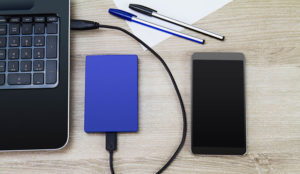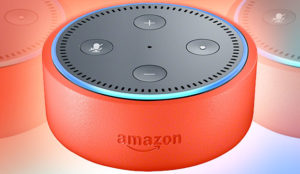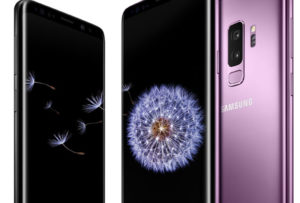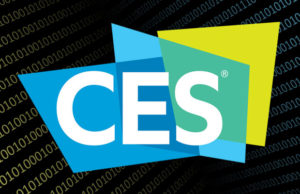
Like many other tech companies, Twitter is largely made up of white, male employees, pointing to a lack of diversity in the industry.
The company revealed statistics about its organizational demographics, noting that almost 60 percent of Twitter’s U.S. employees self-identify as white. Just under 30 percent of the workforce identifies as Asian. Combined, blacks, Native Americans, Pacific Islanders and Hispanics account for a total of less than 7 percent.
Of Twitter’s global workforce of around 3,000, 70 percent are male, and only a tenth of workers in the tech department are women. The non-tech workforce is split evenly between males and females, but women hold just a fifth of leadership positions.
Industry Issue
Twitter follows in the footsteps of peers like Facebook, Yahoo, LinkedIn and Google, all of which revealed demographic information about their organizations over the last two months.
Those companies disclosed that they were between 62 percent and 70 percent male. Whites and Asians made up between 88 percent and 91 percent of their workforces. Black people accounted for just 2 percent of staff members at each of those four companies.
“I think diversity issues, as well as a public push for transparency from tech companies, have become more of a hot topic in the public forum and in the media,” Lauren Williams, a technology reporter at ThinkProgress, told TechNewsWorld.
“More tech workers are coming forward with their own stories of discrimination or harassment. There have been a couple of very public firings and resignations, such as Adria Richards and Julie Ann Horvath. So I think prominent stories like that, as they happen more frequently, have caused the industry to be more introspective and open with consumers.”
Civil rights organization ColorOfChange was among those that pressured Twitter into revealing the statistics after the other companies did so. The group gathered more than 25,000 signatures petitioning Twitter to release the figures.
‘Good First Step’
“After thousands of ColorOfChange members raised their voices last week, Twitter took a good first step in the right direction,” said Rashad Robinson, executive director of Color of Change.
“Transparency and a public commitment to improving the recruitment and retention of Black, Latino, and women employees are critical first steps. But the hard work begins now. We will continue to shine a light on Silicon Valley’s diversity problem, and push tech companies toward real inclusion at every level,” he told TechNewsWorld.
“I think [Silicon Valley’s diversity problem is] complex,” ThinkProgress’ Williams said. “There’s a cult effect where people in Silicon Valley hire or bring on people from the same elite circles and colleges. There’s also an early education problem where minorities and women aren’t exposed to coding or computer science. And thirdly, there’s an outreach problem.”
‘Ready to Address It’
“It’s not a new problem. Execs have known about it for years, but — maybe I’m an optimist — I think they didn’t really know where to start or how to address the problem,” Williams added.
“Google had led the way with their diversity report and has been having internal discussions about it for years. Definitely, not wanting the bad publicity and putting hard numbers to decades of discriminatory anecdotes was part of the delay,” she said, “but ultimately, I think companies are releasing the numbers now because, for whatever reason, they’re ready to address it.”
For its part, Twitter is trying to combat the problem in the interests of better representing its global user base. The company has several employee-led groups attempting to make Twitter a more inclusive place to work. Among them are WomEng (women in engineering), SWAT (super women at Twitter), TwUX (Twitter women in design), Blackbird (employees of color), TwitterOpen (LGBTQ persons) and Alas (Latino and Latina employees).
Twitter says it’s actively recruiting from communities that may be under-represented, at places like women’s colleges and historically black colleges and universities. It also has partnered with a number or organizations in an attempt to shift the diversity balance.
Twitter has been a staunch supporter of the Girls Who Code group since its formation. It has hosted Geek Girl Dinners. It also has a partnership with sf.girls, which aims to inspire and aid middle school girls in chasing technology educations and careers.
It also has sponsored conferences like LGBT-focused Out for Tech, and it has frequently presented at the Grace Hopper conference, which is focused on highlighting the research and careers of women in the technology industry.
Bias Mitigation
Meanwhile, Twitter is carrying out bias mitigation training throughout the company.
“Progress first starts with admitting there’s a problem and then actively working to remedy it,” Williams noted.
“Twitter is not alone. Its numbers look very similar to Google’s and Yahoo’s. So the industry as a whole is going to have to work together to step outside of their comfort zones to make sure they have a variety of voices developing products, leading teams, and at the top executive levels,” she suggested.
“It’s important for every company, not just Twitter, to have a diverse workforce. Innovation doesn’t happen in a silo with a homogeneous group who all come from the same neighborhood and have the same friends,” Williams pointed out.
“Disruptive innovation — that which truly revolutionizes the way we live and interact with one another — comes from having great minds come together and hash it out,” she maintained. “It comes from people who see the world a little differently and together can solve a problem that they wouldn’t be able to on their own.”




















































